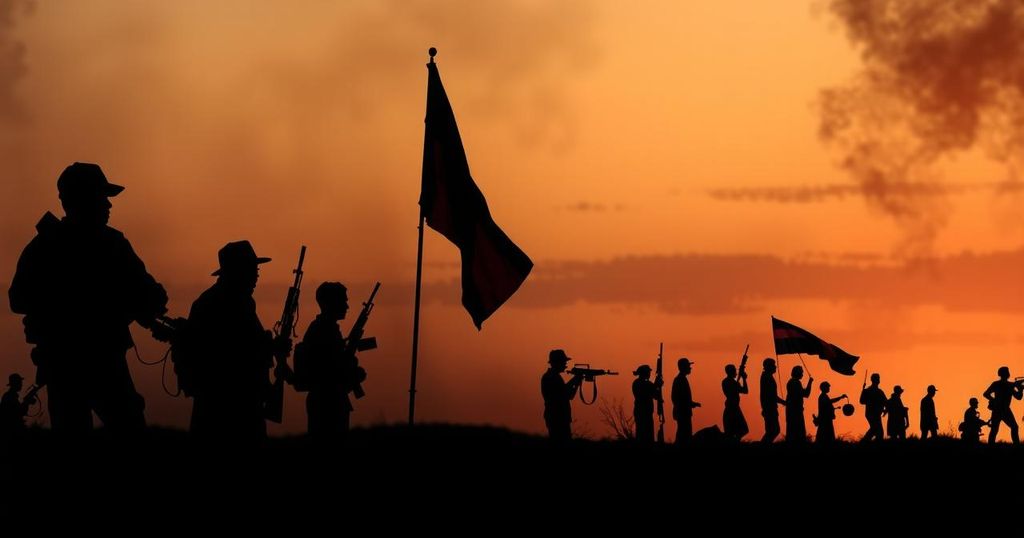Sudan Approaches Critical Juncture as Cease-Fire Negotiations Commence
Summary
The U.S. has initiated cease-fire negotiations to address the civil war in Sudan, amidst warnings of a catastrophic humanitarian crisis. Negotiations are set to begin in Geneva as the RSF has arrived, but the Sudanese Army’s participation remains unconfirmed. The ongoing conflict has caused severe displacement and urgent hunger issues, prompting international concern and calls for action.
The United States has announced that cease-fire negotiations mediated by its representatives will proceed this week, as an effort to resolve the ongoing civil conflict in Sudan. This announcement was made despite the uncertainty surrounding the participation of the Sudanese Army (SAF). The negotiations are scheduled to commence on Wednesday in Geneva, Switzerland, co-hosted by Switzerland and Saudi Arabia, with oversight from the African Union, Egypt, the United Nations, and the United Arab Emirates. U.S. Special Envoy for Sudan, Tom Perriello, emphasized the urgency for peace, stating, “The time for peace is now,” while noting that the RSF delegation had already arrived in Switzerland. He also remarked, “The world is watching,” signifying international concern regarding the situation in Sudan. Perriello indicated that extensive discussions have taken place with the SAF in the lead-up to the talks, yet confirmation of their participation remains pending. The backdrop of these negotiations is grim, as the United Nations reports that Sudan is facing a “catastrophic breaking point,” exacerbated by famine declarations, significant flooding, and relentless fighting, establishing it as one of the most severe humanitarian crises in recent history. According to the International Organization for Migration (IOM), almost 11 million individuals are now internally displaced, many having relocated multiple times. Perriello noted the dire circumstances of tens of millions of Sudanese, stating, “Tens of millions of Sudanese face either full-on starvation or acute hunger.” In particular, reports from Sennar State indicate alarming conditions, including widespread killings and human rights violations, with over 700,000 displaced just in that region. Since the onset of civil war in April 2023 following disagreements over a transition to civilian governance, over 16,000 fatalities and at least 33,000 injuries have been reported, though local sources indicate the actual figures may be higher. Reflecting on the situation’s severity, IOM’s Regional Director for Middle East North Africa, Othman Belbeisi, warned of looming preventable deaths without a significant global response, labeling the condition as a “catastrophic, cataclysmic breaking point.” The upcoming negotiations seek to facilitate a cessation of violence and expand humanitarian access, building upon prior discussions held in Jeddah, co-facilitated by Saudi Arabia. The U.S. aims to support the Sudanese populace through these efforts, expressing a firm commitment to creating actionable plans for lasting peace. In conclusion, while the U.S. prepares for the imminent cease-fire discussions in Switzerland, the ongoing crisis in Sudan continues to escalate, with dire humanitarian consequences for millions. The international community watches closely, hoping for a resolution that will safeguard the lives of those caught in the conflict.
Sudan has been embroiled in a civil war since April 2023, following escalated tensions between the military and the paramilitary group known as the Rapid Support Forces (RSF). The conflict has led to significant humanitarian crises, marked by widespread displacement, famine, and violence. The U.S. has taken the initiative to mediate cease-fire talks aimed at halting hostilities and addressing urgent humanitarian needs, with various international partners involved for a coordinated response.
The situation in Sudan is critically serious, with ongoing civil strife resulting in enormous humanitarian fallout. The U.S.-mediated cease-fire talks represent a crucial step towards achieving peace and aiding millions affected by the conflict. Continued efforts will be essential to ensure effective outcomes that can halt the violence and expand humanitarian efforts in the region.
Original Source: abcnews.go.com








Post Comment